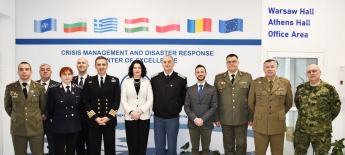Looking Back on the Very Beginning
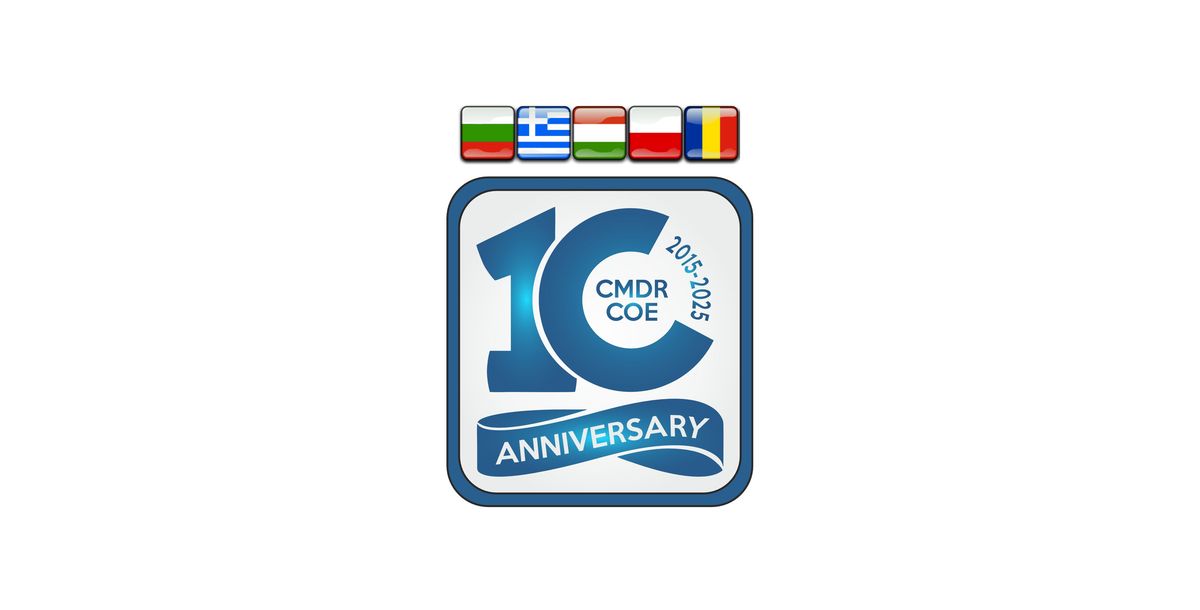
Date: (31-03-2025)
NATO's Centres of Excellence are international military organisations that are designed to provide education and training, assistance in doctrine development, lessons learned, and to support NATO to improve interoperability and defence capabilities, to test and validate concepts through experimentation. The process of development the Alliance centres significantly accelerated with Smart Defence initiative, declared at the NATO summit in Chicago, May 2012. The main objective of this approach was development of specialised expert entities in NATO that support the Alliance transformation with avoiding duplication of nations’ existing efforts, means, resources and capabilities.
NATO’s Centres of Excellence are international military organisations that are designed to provide education and training, assistance in doctrine development, lessons learned, and to support NATO to improve interoperability and defence capabilities, to test and validate concepts through experimentation. The process of development the Alliance centres significantly accelerated with Smart Defence initiative, declared at the NATO summit in Chicago, May 2012. The main objective of this approach was development of specialised expert entities in NATO that support the Alliance transformation with avoiding duplication of nations’ existing efforts, means, resources and capabilities.
In 2011, the Bulgarian Ministry of Defence initiated a project of development an expert entity, designed to assist national institutions and to provide specialised expertise for NATO nations in area of crisis management and disasters response. The project started with the establishing of a working group for development a Centre for high level of competences. The group was tasked to define an appropriate functional area and name of the Centre, to develop drafts of vision, plan and financial assessment of the project, and later on to develop a draft Concept of the Centre. The name of “Crisis Management and Disaster Relief” was contrived at that time. At the end of the 2011, the internal process of coordination was finished and the draft strategic documents for further establishing of the Centre was developed and deconflicted institutionally by Colonel Prof. Mitko Stoykov. The project was used to promote the Bulgarian MOD initiative at all possible levels of NATO, like Concept Development and Education, and Transformation Conferences, international visits and conversations. The process of deconflicting with other similar NATO entities was time consuming, prolonged up to six month.
On March 22, 2012, in accordance with the established NATO procedures for the construction of the centres, a team for the implementation of the project was established by order of the Bulgarian Minister of Defence. Taking into account the opinions of NATO Headquarters, the Joint Staff, member states and NATO centres, a second version of the Centre’s concept was developed.
The Centre was established as an independent legal entity under Article 60 of the Administration Act and a secondary budget appropriations officer under the Bulgarian Minister of Defence with Decree of the Council of Ministers No. 291/16.11.2012 (published in the State Gazette on 23.11.2012). The First Conference on the Establishment of the Centre was planned and held as results were agreed version of the Centre Concept, considered versions of the Centre’s Operational and Functional Memorandums of Understanding, proposed versions of job descriptions of the participating countries.
The Second Conference was held from March 25-27, 2013 where a support was received by the Hellenic Republic and the Republic of Poland to become the Centre’s Sponsoring countries as well as variants of the Operational and Functional Memoranda of Understanding have been agreed upon and future activities for the construction of the Centre and a time frame for their implementation until its accreditation by NATO have been identified.
NATO Partner countries also expressed increased interest in the implementation of the project (Austria, Sweden, Georgia, Ukraine, N.Macedonia, etc.). In response to questions raised by them in the NATO Military Committee, the Centre was presented at a meeting of the committee in the Euro-Atlantic Partnership Council (EACP) format on May 28, 2013. On May 27, 2013, the project was presented to the Working Group of the EU Military Committee, which requested that Bulgaria, after accreditation, provide the Centre to support the development of EU capabilities. In order to avoid duplication and competition in crisis management and disaster response capabilities between NATO and the EU, a questionnaire on the Centre’s activities in the field of training and preparation was completed and sent at the request of the EU. Contacts with NATO and EU structures continue to identify additional opportunities for cooperation and interaction.
Activities for the construction of the Centre and deadlines for their implementation:
• Continuation of talks with ministries and departments in the country for the accession of their experts to the centre – Ministry of Interior, Ministry of Transport and Communications, Ministry of Justice, Ministry of Regional Development and Public Works, Ministry of Public Works and Public Works, and others.
• National ratification of the Memorandums of Understanding for each of the Centre’s sponsoring countries (Bulgaria, Greece, Poland) – completed at the end of July 2013;
• Preparation and submission of a self-assessment of the Centre for the beginning of its accreditation – completed by the end of June 2013;
• Familiarization of the Allied Command Transformation with the self-assessment and its adoption – by mid- October 2013;
• Organization and holding of a ceremony for the official signing of the Memoranda of Understanding by the sponsoring countries of the Centre – 28.08. 2013;
• Organization and holding of the meeting of the Centre’s Management Board and visit of the NATO accreditation team – 11-12.09. 2013;
• Holding meetings and preparing interdepartmental agreements for filling expert positions by interested ministries and organizations from the country – by the end of October 2013;
• Presentation of a report by the ACT to the NATO Military Committee and a proposal to the NATO North Atlantic Council (NAC) to approve the accreditation of the Centre – by the end of October 2013.
• Decision by the NAC to grant the status of an International Military Organization – November -December 2013
After the Centre’s accreditation is completed, due to the extremely strong interest from the Partners, the preparation and conclusion of Technical Agreements with partner countries wishing to join it will begin.
Nevertheless of all effort and results, including agreement between Bulgaria and ACT, in September 2013, the new MOD leadership withdrew its support for Bulgaria’s unwillingness to build a NATO centre on its territory. A number of administrative tricks and obstacles were used to erase the hard-won achievements. In early 2014, the Ministry of Defence decided to change the status of the Centre, make it part of the Military Academy and lower the level of the expert positions. As a result, most of the appointed personnel with extremely high expertise left the Centre forever. After the change of MOD political leadership the following year, the project to build the CMDR COE was restarted.
News
 14th CMDR COE Annual Conference and 4th International Conference on Environmental Protection and Disaster Risks
14th CMDR COE Annual Conference and 4th International Conference on Environmental Protection and Disaster Risks Save the Date | Sofia, Bulgaria | 1–3 June 2026
» read more
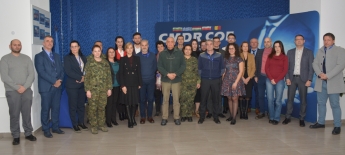 CMDR COE Successfully Delivered the “Risk Management for Business Continuity and Organisational Resilience” Course
CMDR COE Successfully Delivered the “Risk Management for Business Continuity and Organisational Resilience” CourseThe Crisis Management and Disaster Response Centre of Excellence (CMDR COE) delivered the “Risk Management for Business Continuity and Organisational Resilience” course in Sofia from 12 to 16 January 2026.
» read more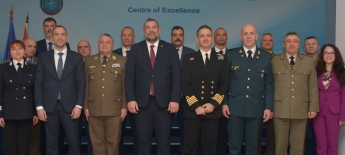 Delegation from Montenegro visited the CMDR COE
Delegation from Montenegro visited the CMDR COEA high-level delegation from Montenegro, led by the Minister of Defence, H.E. Mr Dragan KRAPOVIĆ, paid a visit to the CMDR COE yesterday.
» read more Final results of the project “Investigation and Modelling of Forest Fire Behaviour on the Territory of Bulgaria”
Final results of the project “Investigation and Modelling of Forest Fire Behaviour on the Territory of Bulgaria”Prof. Dr. Nina Dobrinkova of the Institute of Information and Communication Technologies at the Bulgarian Academy of Sciences (IICT-BAS) will present the final results of her project “Investigation and Modelling of Forest Fire Behaviour on the Territory of Bulgaria.”
» read more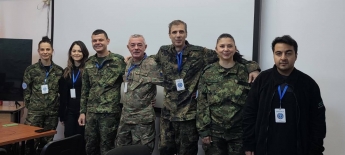 ENHANCING REGIONAL READINESS THROUGH SEESIM 25
ENHANCING REGIONAL READINESS THROUGH SEESIM 25CMDR COE LEADS INNOVATIVE MINI EXERCISE AT SEESIM 25
» read more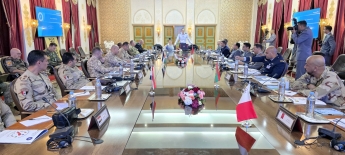 CMDR COE and JFC Naples Strengthen Regional Crisis Cooperation in Rabat
CMDR COE and JFC Naples Strengthen Regional Crisis Cooperation in RabatMultinational workshop on Crisis Management and Disaster Response gathers representatives from Egypt, Jordan, Morocco, Mauritania, Malta, and the African Union
» read more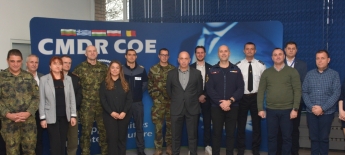 Competed Strategic Decision Making for Crisis Response Operations Course
Competed Strategic Decision Making for Crisis Response Operations CourseThe CMDR COE successfully concluded its residential course on Strategic Decision Making for Crisis Response Operations, held from 24–28 November 2025.
» read more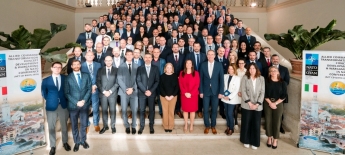 The CMDR COE participated in the high-profile NATO Concept Development & Experimentation Conference in Verona
The CMDR COE participated in the high-profile NATO Concept Development & Experimentation Conference in VeronaLast week, representatives from the Crisis Management and Disaster Response Centre of Excellence (CMDR COE), Major Ralitsa Bakalova and Professor Mitko Stoykov, participated in the high-profile NATO Concept Development & Experimentation (CD&E) Conference, held in Verona. This landmark event was dedicated to advancing the synergy between concept development and wargaming to support the development of future forces.
» read more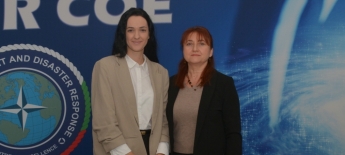 Brilliant Final Presentation
Brilliant Final PresentationOn November 21, 2025, our intern Asya Arsova presented her final project “Forest Fires in the Balkans 2025: Risks, Responses and Lessons Learned”.
» read more CMDR COE participates at the NITEC and IPB conferences
CMDR COE participates at the NITEC and IPB conferencesFrom 18-20 November 2025, the Education Training Programmes and Plans division of the Multi-Domain Force Development Directorate (MDFD/ACT) successfully organized and conducted the annual NATO Individual Training and Education Conference (NITEC) and the NATO ITEP Planning Board (IPB) Conference.
» read more 26th World Geographic Information Systems (GIS) Day.
26th World Geographic Information Systems (GIS) Day.On November 19, Bulgaria will mark the 26th World Geographic Information Systems (GIS) Day with a large-scale conference themed “GIS connects everything, everywhere – for a more sustainable world”.
» read more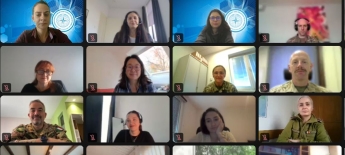 SECOND ITERATION OF THE NATO-APPROVED GFP COURSE
SECOND ITERATION OF THE NATO-APPROVED GFP COURSECMDR COE conducted the second 2025 iteration of the NATO-approved GFP course, advancing gender perspective integration through multinational participation and expert facilitation.
» read more CYDEF 2025
CYDEF 2025The Crisis Management and Disaster Response Centre of Excellence (CMDR COE) will proudly take part in the Cyber Defence Conference (CYDEF 2025), where COL Kostadin Lazarov will represent the Centre as a Keynote Speaker.
» read more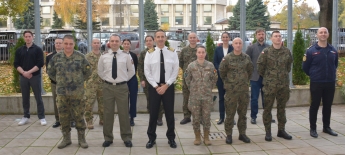 Crisis Management and Disaster Response Exercise Planners Training Course
Crisis Management and Disaster Response Exercise Planners Training CourseThe CMDR COE is conducting the 2025 iteration of the Crisis Management and Disaster Response Exercise Planners Training Course from 03 to 07 November 2025.
» read more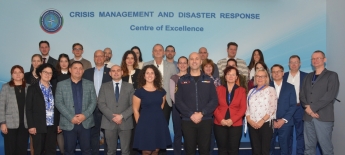 Resilience through Civil Preparedness Course
Resilience through Civil Preparedness CourseThe CMDR COE proudly announces the successful completion of the 2025 iteration of the Resilience through Civil Preparedness Course.
» read more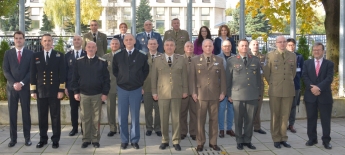 13th CMDR COE Steering Committee (SC) Meeting
13th CMDR COE Steering Committee (SC) MeetingThe two-day 13th CMDR COE Steering Committee Meeting concluded today. The members of the SC remain fully committed to the further development of our Centre of Excellence.
» read more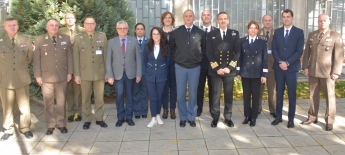 6th CMDR COE Academic Advisory Board (AAB) Meeting
6th CMDR COE Academic Advisory Board (AAB) MeetingIt has been a busy week at the CMDR COE premises. The 6th CMDR COE Academic Advisory Board (AAB) Meeting was held yesterday, 20 October 2025.
The Academic Advisory Board (AAB) is an independent body that assists the CMDR COE in managing the scientific research and educational activities of the Crisis Management and Disaster Response Centre of Excellence.
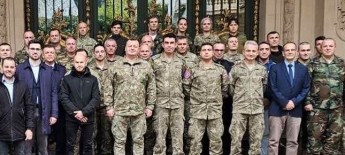 CMDR COE contributed to SEESIM 25 Final Coordination Conference
CMDR COE contributed to SEESIM 25 Final Coordination Conference CMDR COE remains committed to strengthening regional cooperation and advancing readiness in crisis management and disaster response.
» read more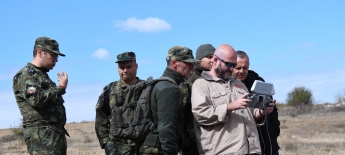 Uncrewed Aerial Systems Course for Operators
Uncrewed Aerial Systems Course for OperatorsThe Uncrewed Aerial Systems (UAS) Course for operators was held at the Crisis Management and Disaster Response Centre of Excellence from 30 September to 3 October 2025. It brought together 23 students from diverse backgrounds in a dynamic in-person setting.
» read more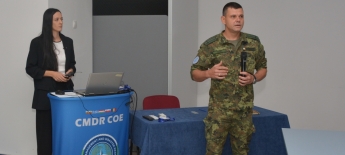 Another success for the CMDR COE: another brilliant intern’s programme completed
Another success for the CMDR COE: another brilliant intern’s programme completedThe CMDR COE is proud to announce that Ms Asya Arsova has successfully completed the first phase of her Internship Programme. She presented her research paper on “Analysing Dynamics and Impacts of Contemporary People Mass Movements: A Multidisciplinary Exploration”, which addresses one of the most relevant and rapidly evolving fields in today’s global security landscape.
» read more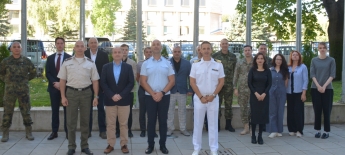 Joint Operations Planning Introduction Course
Joint Operations Planning Introduction CourseThe Joint Operations Planning Introduction Course took place at the Crisis Management and Disaster Response Centre of Excellence (CMDR COE) from 22 to 26 September 2025, bringing together 16 participants from five NATO and partner nations in a dynamic, in-person setting.
» read more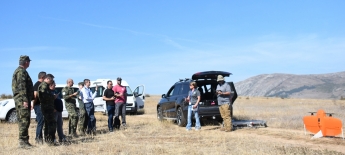 First Module UAS Course in coordination with Engineer Research and Development Centre (ERDC), US Army Corps of Engineers (USACE)
First Module UAS Course in coordination with Engineer Research and Development Centre (ERDC), US Army Corps of Engineers (USACE)From 23 to 26 September 2025 the CMDR COE hosted a course designed to provide participants with comprehensive knowledge and practical expertise in the deployment of Uncrewed Aerial Systems (UAS) for data-driven decision-making across operational, civilian, and emergency contexts.
» read more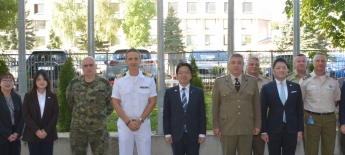 Visit of the Japanese Delegation
Visit of the Japanese DelegationThe Crisis Management and Disaster Response Centre of Excellence welcomed the Japan’s Parliamentary Vice- Minister of Defense, Mr. Yozo Kaneko.
» read more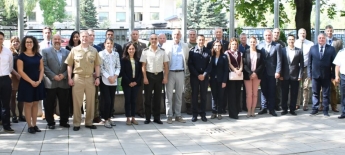 Layered Resilience Concept Validation Event
Layered Resilience Concept Validation EventThe CMDR COE hosted a successful Layered Resilience Concept (LRC) Validation event in Sofia, Bulgaria on 14-19 September 2025.
» read more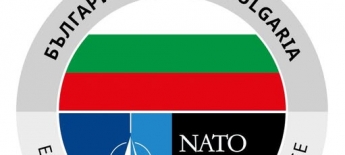 CMDR COE participation to the Exercise "BULGARIA 2025"
CMDR COE participation to the Exercise "BULGARIA 2025"The 20th NATO EADRCC Emergency Management Exercise “BULGARIA 2025” (“the Exercise”) took place in Montana, Bulgaria from 7 to 12 September 2025, accompanied by a facilitated strategic discussion in Sofia, Bulgaria, on 09 September 2025.
» read more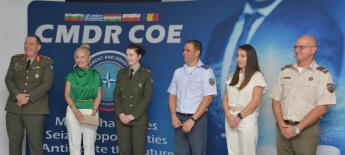 Farewell Ceremony and Appreciation of Services for Departing CMDR COE Staff
Farewell Ceremony and Appreciation of Services for Departing CMDR COE StaffOn 18 August 2025, a farewell ceremony was held for the officers who have departed from our CMDR COE, honoring their contributions and dedication throughout their mandate.
» read more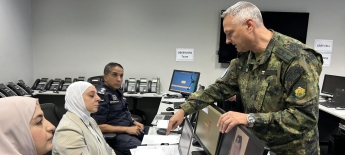 Ammon Sentinel 2025 Exercise Strengthens Jordan’s Crisis Management Capabilities
Ammon Sentinel 2025 Exercise Strengthens Jordan’s Crisis Management CapabilitiesThe landmark exercise marks a significant step in strengthening Jordan’s national crisis management capabilities.
» read more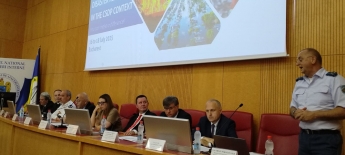 Disaster Relief in CSDP Context Course
Disaster Relief in CSDP Context CourseFrom 16th till 18th of July in Bucharest was conducted a course dedicated to Disaster Relief in CSDP Context.
» read more Successful completion of the University education of CMDR COE interns
Successful completion of the University education of CMDR COE internsCMDR COE is proud to announce that its interns Asya ARSOVA and Katya POPOVA successfully completed their University education.
» read more
